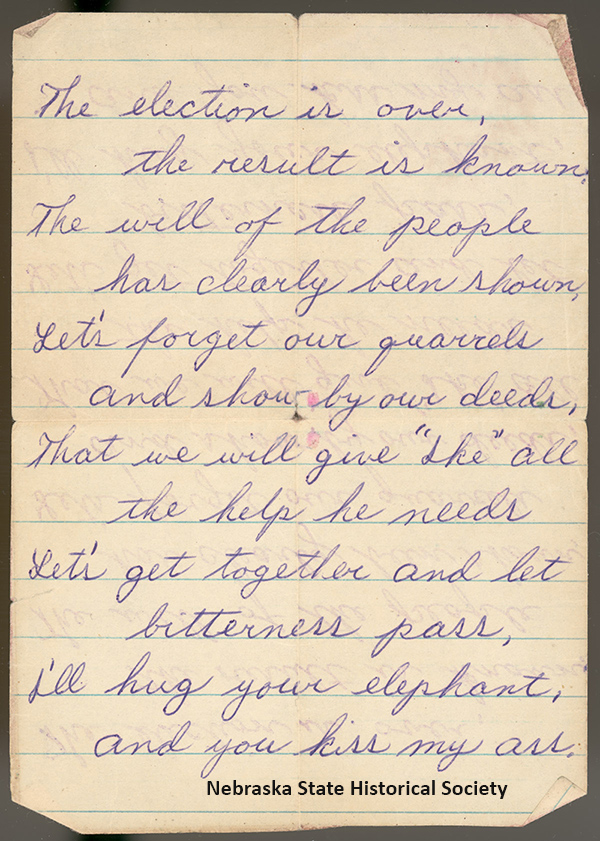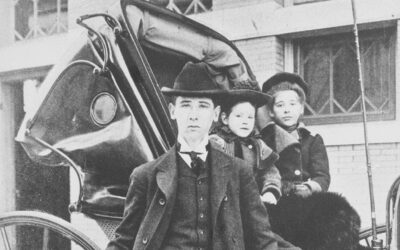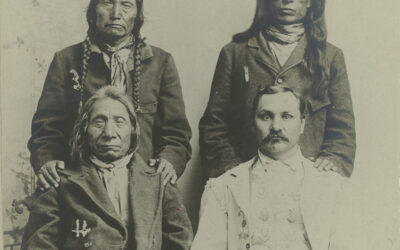A bit of post-election humor has a dark backstory unrelated to politics. How did this piece of paper become part of History Nebraska’s collections?
 History Nebraska RG207, Series 7, Subseries 9, Box 2.
History Nebraska RG207, Series 7, Subseries 9, Box 2.
“The election is over, the result is known, /The will of the people has clearly been shown. /Let’s forget our quarrels and show by our deeds, /That we will give ‘Ike’ all the help he needs /Let’s get together and let bitterness pass, /I’ll hug your elephant and you kiss my ass.”
The poem dates to a time long before Facebook memes, when such humor spread mostly by being hand-copied and passed friend-to-friend. Its final line placed it just below the threshold of acceptability among polite company.
For many years it was rarely quoted in print. In 1961 a county assessor in Washington State raised a fuss when the poem appeared in a farm products report published by Washington State University. The Associated Press reported that the assessor complained that the verse referred to the Republican Party in “crude terms” (though it had rendered the final line, “and you kiss my donkey”). University officials apologized publicly and insisted that WSU was strictly non-partisan.
The poem was neither respectful nor respectable, but it would not die. Versions circulate to this day, appearing soon after 21st century presidential elections. These days the once-naughty final lines are found on bumper stickers, and there are both Democratic and Republican versions (“I’ll hug my elephant, go kiss your ass.”)
Because of the informal way that it circulated, it isn’t clear who wrote the poem or when. Various claims have been made over the years. In 1992, a columnist for the Prescott (Arizona) Courier said that it was a “favorite healing poem” that Arizona Congressman Morris Udall “liked to recite after a bitter campaign.” Mo Udall was known for his wit, and the columnist assumed that he had written it. In 2003, a writer for the Anniston (Alabama) Star claimed that “That bit of doggerel was written back in 1964, by a disgruntled Alabama Democrat whose party had just been kicked around by the GOP.”
But with its reference to “Ike,” the version owned by History Nebraska clearly dates to 1952 or 1956. The verses are older than some people previously thought, and some other discovery might push their origin back even further.
This version was probably copied in 1956, because it was found folded up in a teenager’s wallet when police took possession of it in early 1958. Sometimes odd circumstances like this allow historians and folklorists to trace obscure bits of culture. Many interesting historical objects have been preserved by chance, for reasons unrelated to their content or original purpose.
And this is where the story turns dark.
History Nebraska received this slip of paper some years ago as part of an evidence file from a criminal case dating to January 27, 1958. The wallet belonged to a seventeen-year-old named Robert Jensen, who was driving near Lincoln with his girlfriend, Carol King, when they stopped to pick up two hitchhikers who had gotten their car stuck on a muddy rural road.
The hitchhikers’ names were Charles Starkweather and Caril Fugate. Starkweather had already murdered five people, and Jensen and King became the next two victims on his infamous murder spree.
–David Bristow, Editor

A studio portrait of Jensen. RG0207-1-8
(Article updated 11/10/2020)



